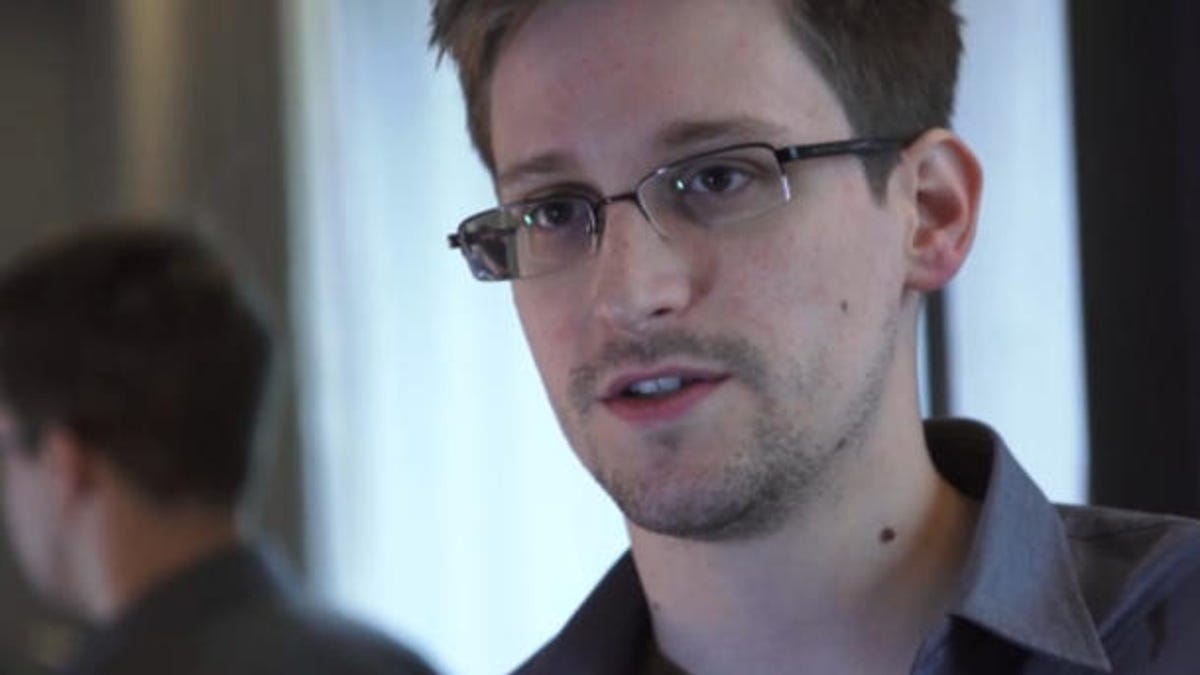Snowden: Feds can't plug leaks by 'murdering me'
Ex-NSA analyst Edward Snowden explains his decisions to readers of the U.K.-based Guardian. He also says that Hong Kong was a better safe haven than Iceland.

Edward Snowden, the one-time U.S. government analyst responsible for the most high-profile leaks from the National Security Agency in its history, is explaining his decision to disclose top-secret documents in a live chat hosted by the U.K.-based Guardian newspaper.
Snowden, 29, is reportedly still in Hong Kong after leaving his home and girlfriend in Hawaii. His disclosures about NSA surveillance, including acquiring logs of millions of Americans' domestic phone calls, have left the Washington establishment reeling. On Sunday, former Vice President Dick Cheney called him a "traitor."
In his responses to questions on Monday from Guardian readers and reporter Glenn Greenwald, Snowden explained his decision to head to Hong Kong:
Leaving the US was an incredible risk, as NSA employees must declare their foreign travel 30 days in advance and are monitored. There was a distinct possibility I would be interdicted en route, so I had to travel with no advance booking to a country with the cultural and legal framework to allow me to work without being immediately detained. Hong Kong provided that. Iceland could be pushed harder, quicker, before the public could have a chance to make their feelings known, and I would not put that past the current US administration....
First, the US Government, just as they did with other whistleblowers, immediately and predictably destroyed any possibility of a fair trial at home, openly declaring me guilty of treason and that the disclosure of secret, criminal, and even unconstitutional acts is an unforgivable crime. That's not justice, and it would be foolish to volunteer yourself to it if you can do more good outside of prison than in it.
Second, let's be clear: I did not reveal any US operations against legitimate military targets. I pointed out where the NSA has hacked civilian infrastructure such as universities, hospitals, and private businesses because it is dangerous. These nakedly, aggressively criminal acts are wrong no matter the target. Not only that, when NSA makes a technical mistake during an exploitation operation, critical systems crash. Congress hasn't declared war on the countries - the majority of them are our allies - but without asking for public permission, NSA is running network operations against them that affect millions of innocent people. And for what? So we can have secret access to a computer in a country we're not even fighting? So we can potentially reveal a potential terrorist with the potential to kill fewer Americans than our own Police? No, the public needs to know the kinds of things a government does in its name, or the "consent of the governed" is meaningless.
2) All I can say right now is the US Government is not going to be able to cover this up by jailing or murdering me. Truth is coming, and it cannot be stopped.
Snowden also called WikiLeaks a "legitimate journalistic outlet" and said that his salary of roughly $200,000 was a "career high," not what he was paid at consulting firm Booz Allen Hamilton where he most recently working. Snowden also stated that President Obama's administration "deepened and expanded several abusive programs" and continued human rights violations including in the Guantanamo Bay prison, where inmates remain without facing charges.

